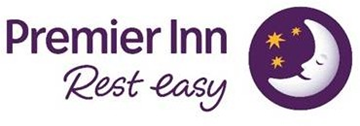- The High Court found no infringement of easyGroup’s registered marks by Premier Inn’s use of the “Rest easy” endline
- Use of the endline alone in marketing was just use of a standard English phrase
- Lack of distinctiveness in the REST EASY APARTMENTS word mark contributed to the finding that there was no confusion with Premier Inn’s marks
In easyGroup Ltd v Premier Inn Hotels Ltd ([2025] EWHC 2229 (Ch)), the High Court has rejected easyGroup’s claims that Premier Inn’s use of the endline “Rest easy” infringes its EASYHOTEL and REST EASY APARTMENTS word marks or its EASY device mark. The status of ‘rest easy’ as a standard English idiom played a key part in the court’s decision, reducing distinctiveness and the ability of consumers to link or confuse the marks.
Background
In 2021 Premier Inn, the United Kingdom’s largest hotel brand, introduced the endline “Rest easy” as part of their rebranding. This appears in various registered and unregistered marks (‘the Premier Inn marks’), an example of which is below:

In 2023 easyGroup alleged that the Premier Inn marks, and Premier Inn’s wider use of the “Rest easy” phrase alone in their marketing copy, infringed its registered EASY device mark (see below) and EASYHOTEL word mark under Section 10(3) of the Trademarks Act 1994:

In January 2024 easyGroup acquired the REST EASY APARTMENTS word mark. It then amended its claim to also include infringement of this mark by the Premier Inn marks under Section 10(2). At the same time as amending their claim, easyGroup sought (and was granted) permission to adduce survey evidence solely for the purpose of demonstrating the reputation and enhanced distinctiveness of the EASY device mark.
Decision
The court dismissed easyGroup’s claims of infringement:
- “Rest easy” phrase alone – the court found that widespread use of this phrase in the hotel sector, combined with it being an ordinary English phrase, meant use of this phrase by Premier Inn outside of the Premier Inn marks was not use in the course of trade and therefore did not infringe. As such, only comparisons with the Premier Inn marks needed to be made to analyse infringement.
- REST EASY APARTMENTS mark – in assessing easyGroup’s claim under Section 10(2), while the judge found that apartment letting was of medium similarity to hotel room letting, ‘rest easy’ being a standard English phrase meant that the distinctiveness of easyGroup’s mark was low and solely in the three-word phrase. In addition, the judge found the similarity between the marks to be low, with the dominant elements of Premier Inn’s mark being the name and moon logo rather than the “Rest easy” phrase. In light of this and the lack of evidence of confusion (despite extensive data covering a four-year period of simultaneous use), the judge concluded that there was no likelihood of confusion.
- EASYHOTELS mark – in assessing easyGroup’s claim under Section 10(3), the judge found the EASYHOTELS mark had only a very low visual and auditory similarity (and no conceptual similarity) with Premier Inn’s marks, which contributed to his finding that the average consumer would not link the two. In addition, there was no evidence to suggest that any consumers had made such a link (despite easyGroup’s survey evidence and results of its brand enforcement tipline on its website, along with Premier Inn’s history of customer feedback). The judge also rejected easyGroup’s detriment claim, that Premier Inn may be using the mark to appeal to the “no frills” customer base without actually reducing their quality or price. easyGroup’s evidence did not support this, and the judge accepted Premier Inn’s evidence that it did not see easyHotels as a competitor.
- EASY device mark – the judge considered this did not have a reputation when used alone in any of the claimed overlapping services (broadly around hotel room letting). This was due to a lack of evidence of this mark being used independently to advertise such services. In addition, easyGroup’s own survey showed minimal unprompted association with hotel room letting (and, even when prompted, the association was usually through package holidays with easyJet). Regardless of this, the judge found that any such claim would alternatively fail for no link being made between it and the Premier Inn’s marks, nor any detriment (for similar reasons as for EASYHOTELS).
- Invalidity – easyGroup also sought invalidation of Premier Inn’s marks, on effectively the same grounds as its claim for infringement (under Sections 5(2) and 5(3)). The judge dismissed this claim for the same reasons as above.
Comment
easyGroup’s survey evidence ultimately did not assist its case, with the judge interpreting it as showing little association between their EASY device and hotel bookings. While the judge also noted the survey was of limited assistance to the overall conclusion, this would have been a significant expense which ultimately, if anything, only aided Premier Inn’s case. This acts as a useful reminder of the difficulties in successfully adducing survey evidence.
More generally, this case further underlines the difficulties in basing protections around plain English words (‘easy’) and idioms (‘Rest easy’), adding to a growing body of easyGroup cases where careful lines have been drawn about the extent of their monopoly on ‘easy’-formative marks. However, with easyGroup having already declared its intention to appeal, it remains to be seen whether further nuances are added to this by the Court of Appeal.
Fred Cascarini, Associate, Bird & Bird
This article first appeared in WTR Daily, part of World Trademark Review, in October 2025. For further information, please go to www.worldtrademarkreview.com

/Passle/64ef1c9c95186b4923406017/MediaLibrary/Images/2026-02-23-11-15-41-283-699c36dd2077178a60ee8e64.png)
/Passle/64ef1c9c95186b4923406017/MediaLibrary/Images/2026-02-19-12-04-25-086-6996fc49ed31acc93b14048e.png)
/Passle/64ef1c9c95186b4923406017/MediaLibrary/Images/2026-02-12-10-21-37-812-698da9b1ba0ab8b6dcf40d4a.jpg)
/Passle/64ef1c9c95186b4923406017/MediaLibrary/Images/2025-08-08-16-41-13-953-689628a94a54c24e51d06f95.png)